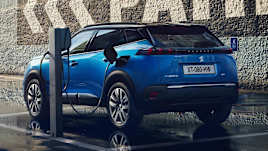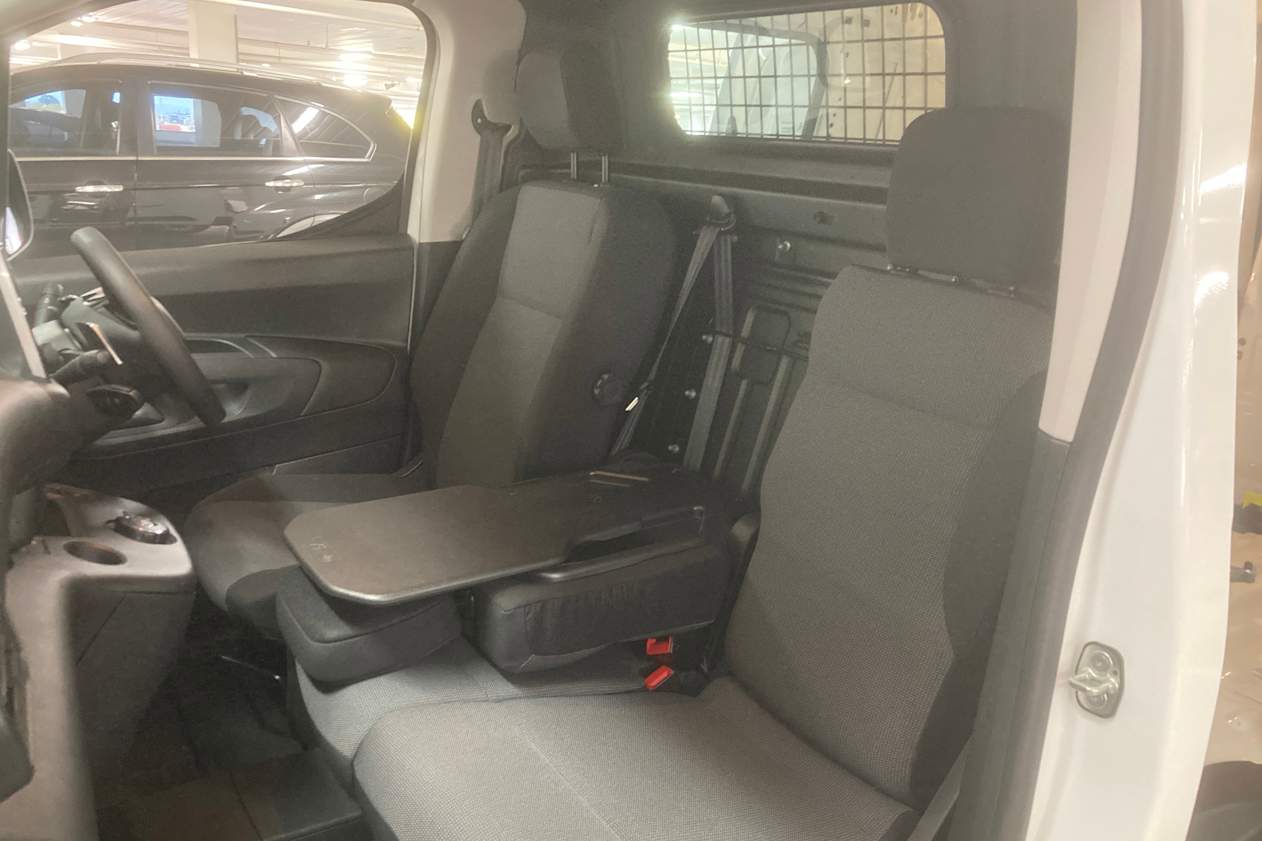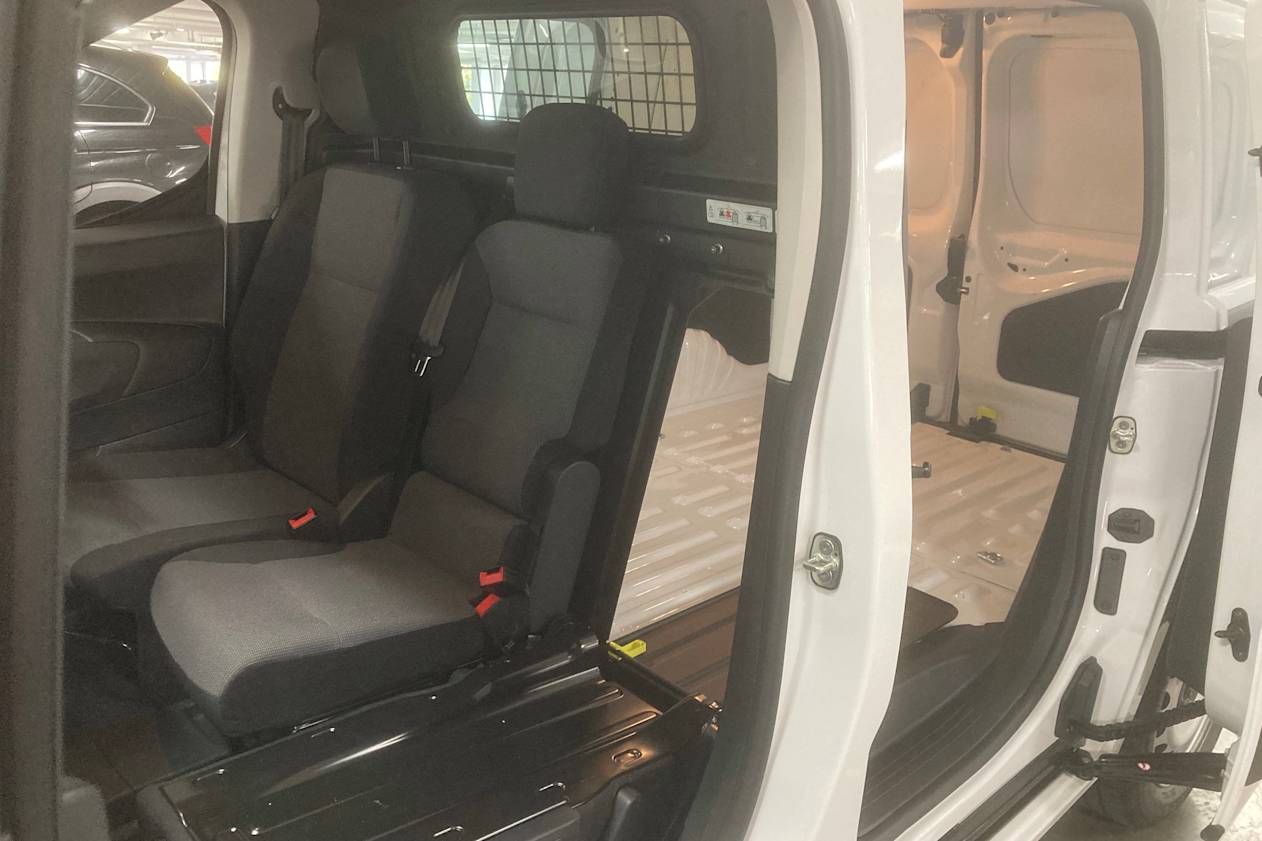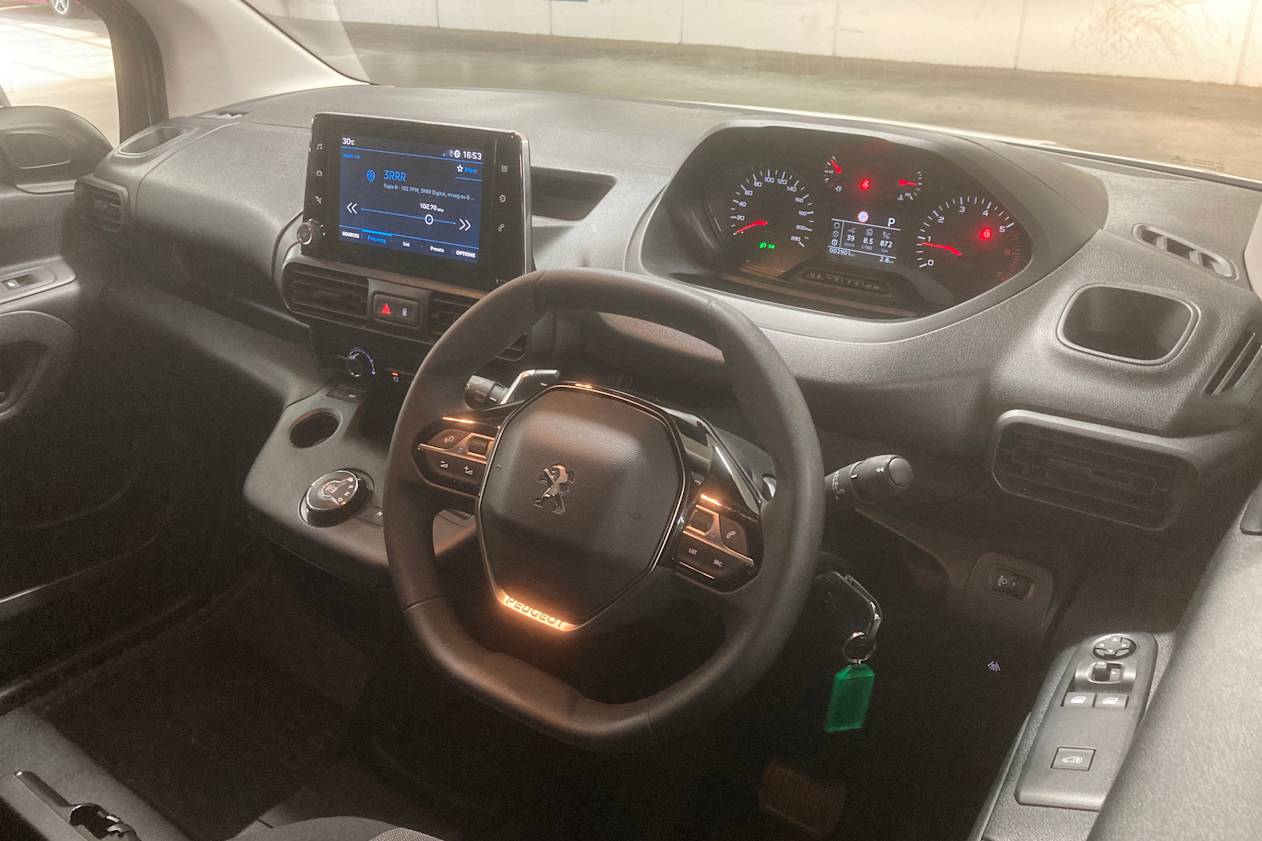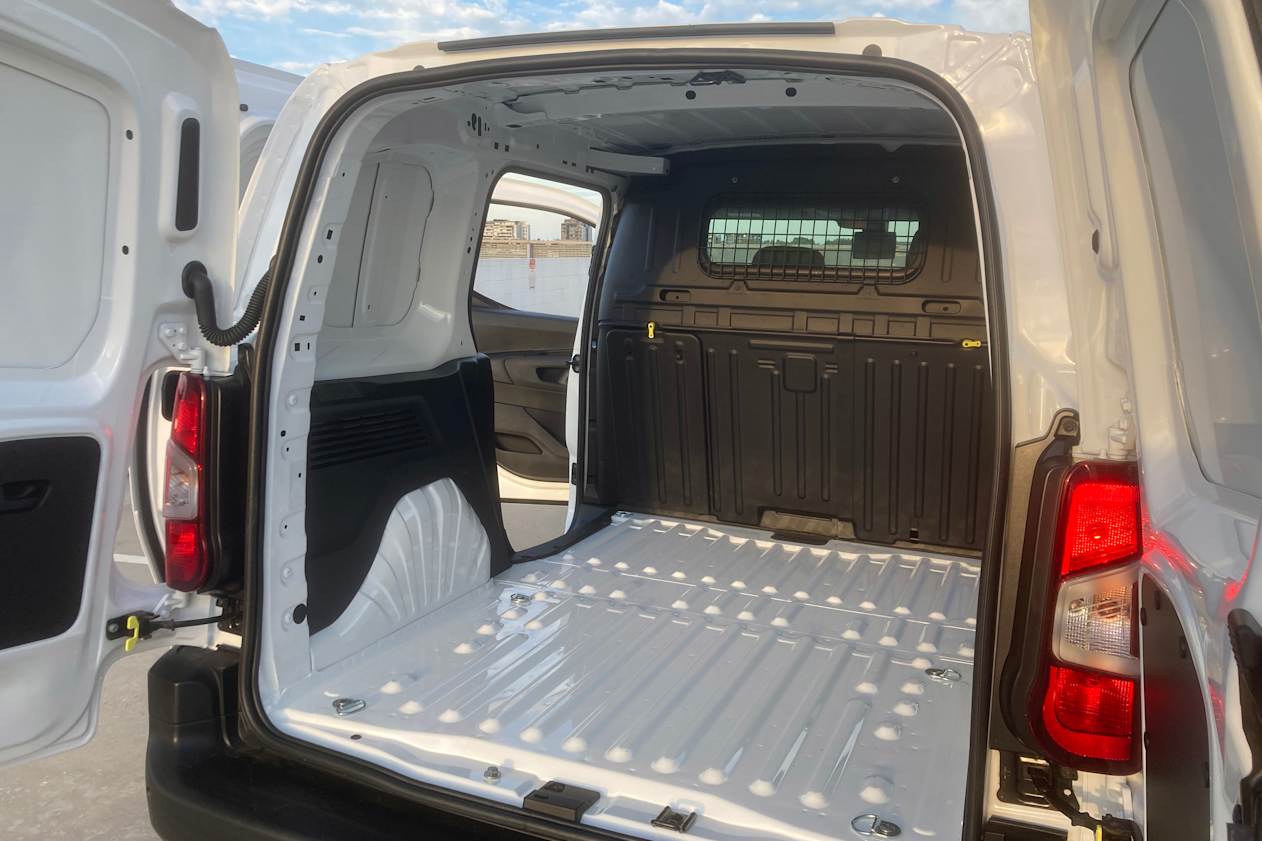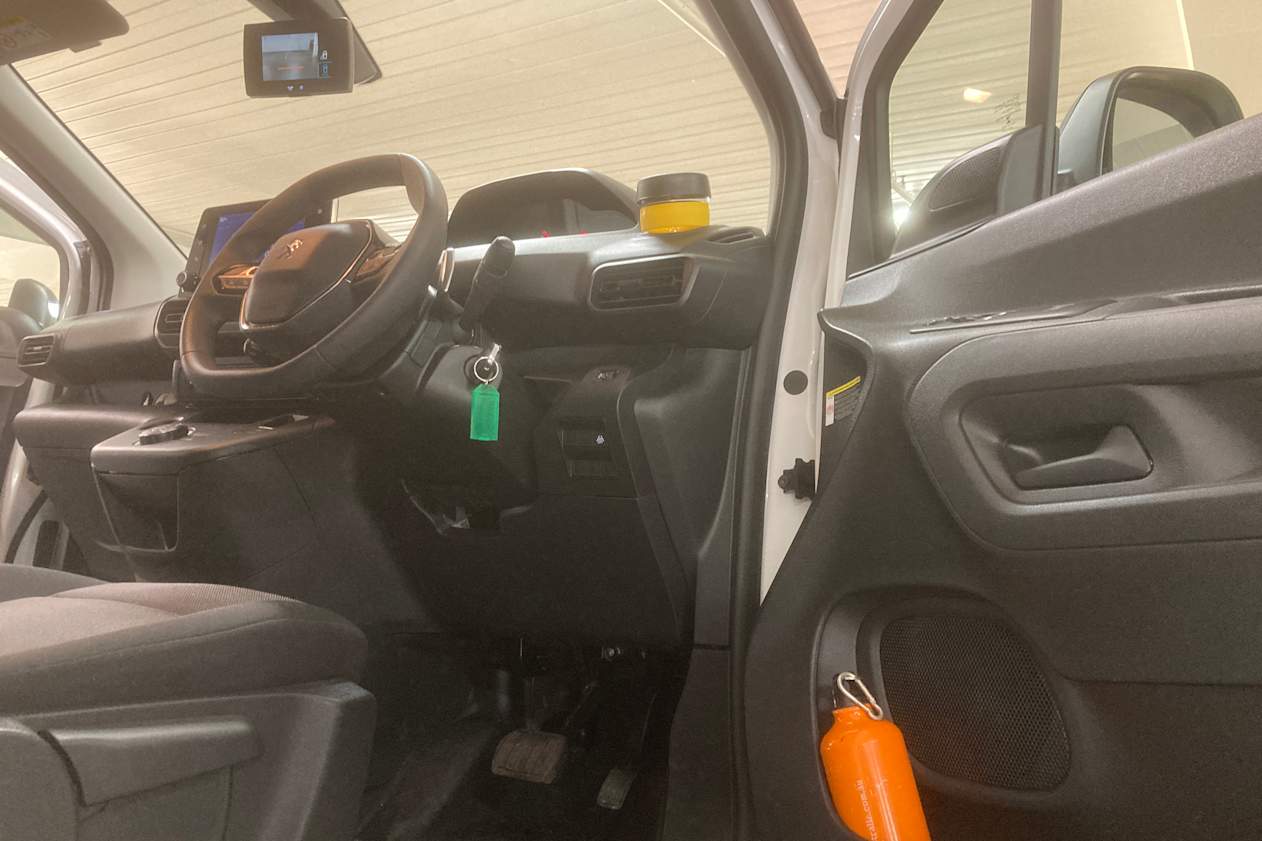It’s a surprise how large the Partner is. It is one of the easiest vehicles you’ll ever experience, with the tall roof, big wide-opening doors and high seating. You simply step up and swing yourself inside, as you might sat on a barstool.
This is a post-Peugeot renaissance interior in here, so there’s a love-it-or-hate-it ‘i-Cockpit’ low-wheel/high instrument pod layout. Futuristic and even perhaps a tad intimidating at first, the dashboard does take a few moments to acclimatise, but once that happens, it does quickly become second-nature.
There’s no denying the ergonomic advantages of having near eye-level dials, which are crisp white-on-black dials and a helpfully big digital speedo, as part of fairly comprehensive trip computer data.
Full marks for the driving position, thanks to a tilt/telescopic wheel and cushion height-adjustability. The basics are spot on, actually, with ample air flow from the simple but effective ventilation system and the easiest multimedia system Peugeot has offered in living memory.
We also commend the camera mirror that provides full-time coverage – though it does need confirmation setting every time it’s restarted. There’s a moveable shelf when the centre seat folded that’s handy as a table and the door pockets are massive.
The myriad storage areas point to Peugeot’s experience in designed practical compact van interiors, with slots and shelves and cubbies to support an extremely deep and long glovebox. There’s also storage above the sunvisor area as well as under the seats, including a compartmentalised area beneath the centre cushion that’s also very useful – especially for hiding the laptop this review is written on. A single USB and 12V outlets are sited for handy charging, but there isn’t any wireless charging available as yet. Four cupholders are also fitted.
Being a van, this has a three-seater arrangement, made possible via a 2+1 bench, with only the driver’s seat being of normal size and proportion. The thinking here is that the centre section is an occasional perch. The outboard passenger seat thus doesn’t recline at all but folds down to allow for a ski-port like access to the rear cargo area.
Flaws include vision-blocking windscreen pillars when negotiating a roundabout. Beware of the awful rotary auto selector, which is fiddly and requires concentration to ensure the stubborn ‘P’ for park segment is selected. That two-seater passenger seat isn’t particularly comfortable. And the lack of digital radio is also disappointing.
That all said the Partner’s passenger compartment is solid, logical, high quality and very European in execution. Beyond the fat pillar bases, vision is good, with a high and commanding point of view that makes the Peugeot easy to pilot around town.
Shown above are interior details for the Peugeot Partner 2021.


